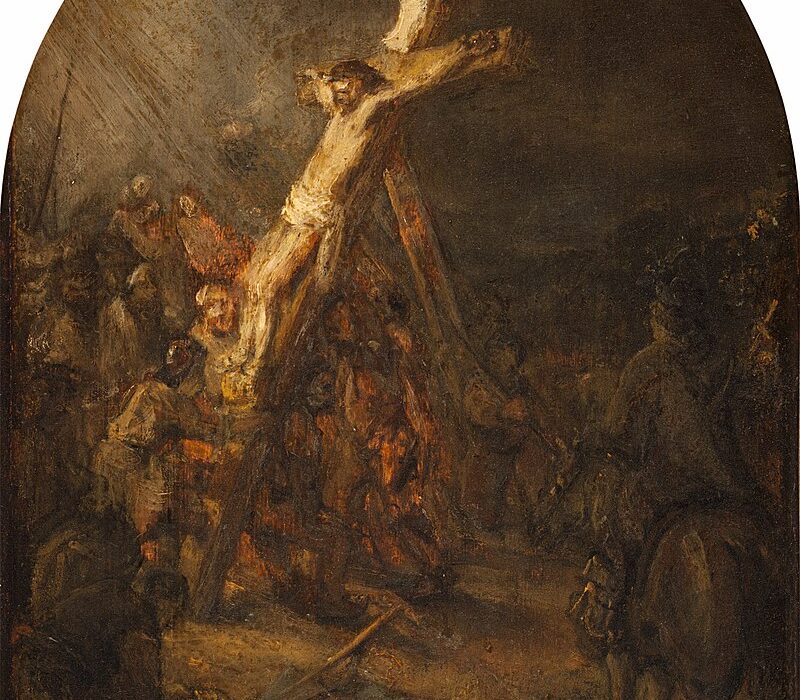Meditation for the Fourth Vespers of Lent
‘Put no trust in a neighbor.’
+INJ+
The prophet seems to say a harsh thing, that we should not only have no trust in princes, but have no trust in friends; and not only friends, but acquaintances.
There are none righteous, for the godly have perished from the earth.
There are none trustworthy, for there is none upright among mankind.
The world is wicked, it is evil, as it has always been, as all of history has repeatedly proven, with the powerful seeking power, and the poor seeking revenge. As it is written, each hunts another with his own net.
It is an odd thing, to watch TV, and see Christians often characterized as naive, unknowingly happy, and always smiling. And perhaps it is not so odd, since this is what many Christians think they should be. A Christian is one who smiles, even smiles for the demons.
The prophet does not smile. He sees a world in decay, and a humanity in decay. A mankind that cannot be loved, cannot be liked, cannot be trusted. How can one smile when there is none without sin?
What the prophet describes is our reality, a humanity fallen, rotting, wasting away by their own accord. Consumed with bloodlust, hunger for power, hunger for pleasure, but no thirst for God.
Because man is wasting away, it is no wonder that the Lord has created a place for them to waste. Gehenna is a real valley in Israel where the Jews would burn their trash. Gehenna is therefore the place where we will burn, for we, too, are trash. For this reason, Gehenna was a colloquialism for Hell, the final ending place for us, and all the refuse of this world, for we have chosen to waste away.
The Lord tells us something strange: ‘You are the salt of the earth.’ What does this mean?
For us, salt is something that imparts flavor. It is a condiment. It is a low level luxury, that we may flavor our food. It is hard to understand what it means to be salt if we are but a seasoning.
But this is because we think as those who live in wealth. To the poor of the world, salt’s value is not in making something taste good, it is in preservation. Roman soldiers were paid in salt not because Roman society so highly regarded good cuisine, but because without salt, one could not survive a winter, for one could not keep food from rot.
Therefore, to be the salt of the world, means to be that which preserves the world from the decadence that we see all around. To be salt is to be light and life, for without salt, there is no life to live and no light to see.
The Lord is simply saying that the Christian is the cure to the putrescence of mankind that the prophet speaks about.
But now we are tempted to wonder how we Christians are so morally superior to the godless world; how our goodness can ‘salt,’ can preserve all we see around us. This too is sin, for we cannot. Nor can we do what is right.
We have missed the point.
That God wishes us to be salt first and foremost means that He wishes to save the world; that He does not desire it to decay; that He does not desire it to rot and be cast into the fire; that He wants it to remain, or for Gehenna to remain hungry.
A light is coming into the world; a light which enlightens the hearts of men; whose blood with cure us from blight, and whose body will deliver us to eternal life.
It is not right for such a light to be hidden under a basket. So it will be set upon a hill. Even the Holy Mount of Zion. Upon a stand, which is the cross.
His light shall shine, and all who look upon Him shall be enlightened. All who see His glory shall be saved. We, O decadent people, need but have patience, and:
‘Wait for the God of our Salvation.’
+INJ+
Preached by Pastor Fields
Sermon Texts: Micah 7:1-10; Matthew 5:13-16.



